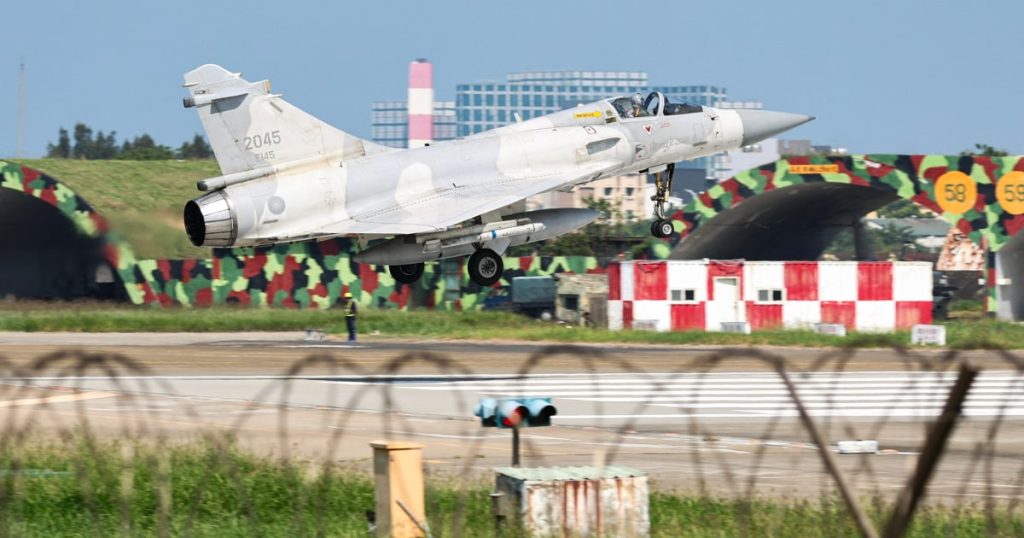China conducted large-scale military drills around Taiwan as a warning to “independence forces” on the Beijing-claimed island. The exercises came after Taiwan President Lai Ching-te’s speech on Taiwan’s National Day, where he stated that China had no right to represent the self-ruling democracy and its people. China, which views Lai as a separatist, conducted the drills called “Joint Sword-2024B” to test joint operations capability. The Chinese military spokesperson stated that the drills were a warning to separatist acts of “Taiwan Independence” forces and were meant to safeguard state sovereignty and national unity.
The Chinese military did not announce any live-fire exercises during the drills. Taiwan’s National Defense Ministry condemned the war games as irrational and provocative. The drills were seen as within expectations by experts in Taiwan, with tensions remaining manageable in the short term. There is unlikely to be further escalation as long as the United States maintains open channels of communication with both China and Taiwan. China has increased military activities around Taiwan in recent years, sending planes and ships towards the island almost daily.
President Lai’s speech on Taiwan’s National Day indicated that Taiwan and China were not subordinate to each other, with democracy and freedom thriving in Taiwan. Lai stated that he would resist annexation or encroachment upon Taiwan’s sovereignty. Chinese officials criticized Lai for advancing Taiwan independence and increasing cross-Strait tensions for his political interest. However, a poll released by Taiwan’s top military think tank showed that most people in Taiwan believe China is unlikely to invade in the next five years, despite viewing Beijing as a serious threat.
The prior drills held after Lai’s inauguration in May were called “Joint Sword-2024A,” indicating a pattern of aggressive military actions in response to perceived challenges to China’s sovereignty over Taiwan. Taiwan stated that it was prepared to respond to the drills and continued to monitor the situation for potential expansion. Taiwan’s government expressed goodwill towards China in maintaining peace in the Taiwan Strait, despite the provocative actions undertaken by the Chinese military. China’s National Defense Ministry emphasized that the drills were necessary for safeguarding state sovereignty and national unity, reinforcing their position on Taiwan’s status.
The tensions between China and Taiwan are rooted in China’s territorial claims over the island and Taiwan’s desire to maintain its self-ruling democracy. President Lai’s comments regarding China’s lack of representation for Taiwan and his commitment to resist annexation or encroachment were seen as a direct challenge to Beijing’s authority. The Chinese Foreign Affairs Ministry’s response to Lai’s speech highlighted the Chinese government’s position on Taiwan’s sovereignty and the unity of both sides of the Taiwan Strait under one China. Despite the tensions, most people in Taiwan believe that China is unlikely to invade in the near future, allowing for a sense of security within the island nation.


